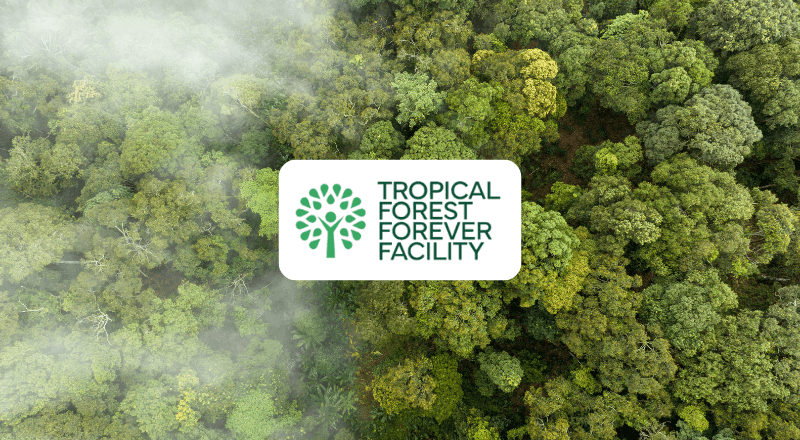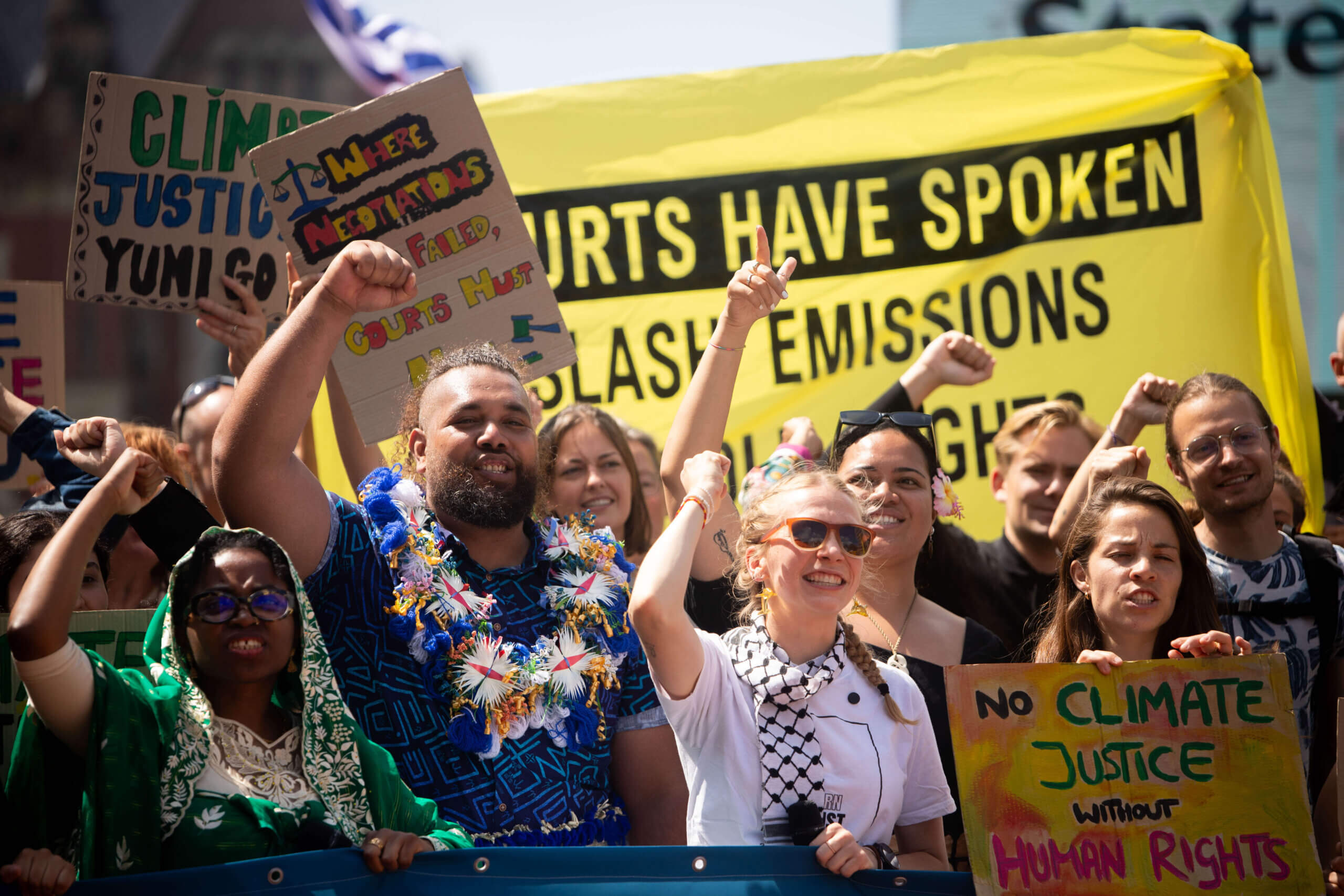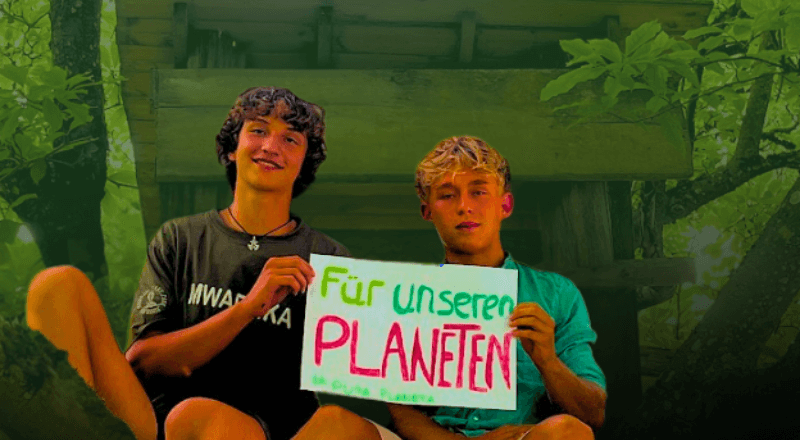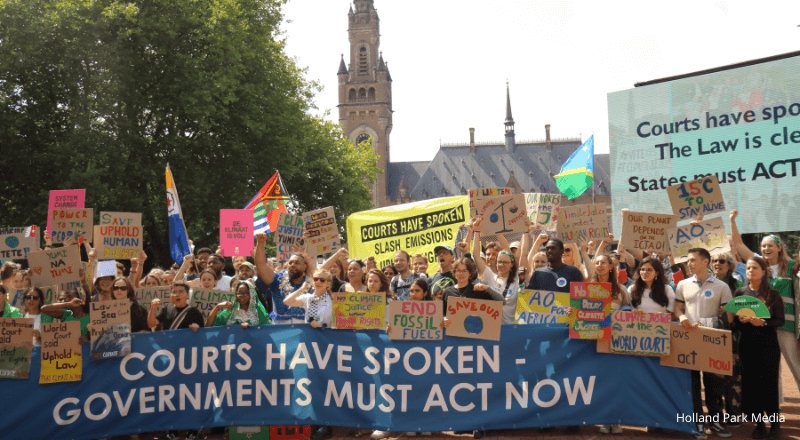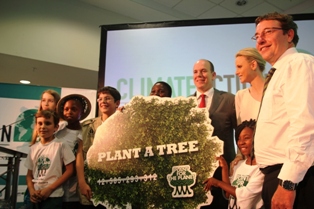
New Phase for Campaign Which Has Planted Over 12 Billion Trees Worldwide
 Durban, South Africa / Nairobi, 7 December 2011 – The management of the Billion Tree Campaign, which has overseen the planting of more than 12 billion trees worldwide, has been formally handed over by the United Nations Environment Programme (UNEP) to the Plant-for-the-Planet Foundation; a youth-led environmental organization based in Germany.
Durban, South Africa / Nairobi, 7 December 2011 – The management of the Billion Tree Campaign, which has overseen the planting of more than 12 billion trees worldwide, has been formally handed over by the United Nations Environment Programme (UNEP) to the Plant-for-the-Planet Foundation; a youth-led environmental organization based in Germany.
The handover ceremony was held during the United Nations Climate Change Conference (COP17) in Durban, South Africa, and was attended by HSH Albert II Prince of Monaco, Patron of the Billion Tree Campaign.
Since the campaign’s inception in 2006, thousands of individuals, schools, governments, corporations and other organisations around the world have planted trees in the name of sustainable development.
The billionth tree, an African Olive, was planted in Ethiopia in November 2007 – just a few months after the campaign was launched.
In May 2008, the second billionth tree took root as part of the United Nations World Food Programme’s agroforestry initiative.
Growing to reach 193 countries, the campaign achieved the 12 billion landmark in October 2011, following a tree planting campaign by a community organisation in Kenya.
“UNEP’s Billion Tree campaign has far surpassed the original goal”, writes United Nations Secretary General Ban Ki-moon in a commemorative booklet produced to mark UNEP’s handover of the campaign.
“More than 12 billion trees have been planted by people from all walks of life — schoolchildren to presidents — testament to a growing global movement for sustainability. As we look to the Rio+20 UN Conference on Sustainable Development and beyond, we will need just this kind of commitment if we are to guarantee that our planet can continue to provide the foundation we need to reduce poverty and improve security and opportunity for all”, added the Secretary-General.
UNEP had always considered the Billion Tree Campaign to have a finite lifespan and, after running the campaign for four years, the organization had a choice between bringing the campaign to a close or transferring it to a partner.
The Plant-for-the-Planet Foundation’s profile with its emphasis on young people, its academies on climate change and its existing commitment and involvement in the Billion Tree Campaign, gave it the right profile with which to allow the campaign to continue as a supportive element in a wider youth initiative.
The final month of the 2011 United Nations International Year of Forests provides a timely moment to hand over the management of the campaign.
“I congratulate all who have participated in the Billion Tree Campaign and on its achievements to date. Each time we set a target and each time we thought it was time to bring the campaign to an end, more and more trees came forward and the bar was set even higher”, said United Nations Under-Secretary-General and UNEP Executive Director Achim Steiner.
“Today we open a new chapter with the Plant-for-the-Planet foundation and its network of enthusiastic young people around the globe. I would encourage all those involved in the BTC to now give the Plant-for-the-Planet Foundation and this network of young people the same kind of support they have given UNEP and the World Agroforestry Centre since 2006”, he added.
“This is an enormous mark of confidence and a historical moment”, said Felix Finkbeiner (14) of the Plant-for-the-Planet Foundation. “We children are now keeping the official tree counter of the Billion Tree Campaign and will work together with governments, companies and the public so that the campaign continues to prosper. We take over this task with the utmost commitment and we will do everything to ensure Wangari Maathai’s legacy further branches out.” 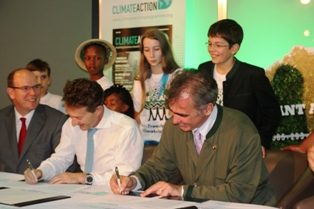
Inspired by the work of the late Nobel Peace Prize Laureate Wangari Maathai and the Green Belt Movement she established in her native Kenya, the Billion Tree Campaign aims to improve quality of life and limit environmental degradation through the multiple benefits provided by trees.
These benefits include tackling climate change through the sequestration of carbon, contributing to local economies through products such as timber and providing ecosystem services such as soil regulation, erosion control and cultural values. Forests also regulate water cycles and provide habitats for biodiversity, while hosting a wide variety of genetic resources.
Planting more trees and investing in forests is among the key strategies put forward in UNEP’s Green Economy Report, which outlines pathways towards low-carbon, resource efficient sustainable development.
The report shows, for example, that halting tropical deforestation and planting new forests could represent the mitigation potential equivalent of doubling current nuclear capacity or constructing two million new wind turbines.
China is currently the leading participating country in the Billion Tree Campaign, having planted a total of 2.8 billion trees under the campaign since 2004. India is in second place with 2.1 billion trees, followed by Ethiopia, Mexico and Turkey.
As well as the campaign’s founding partners, which include the Green Belt Movement, the World Agroforestry Centre, the United Nations Food and Agriculture Organization and the Prince Albert II of Monaco Foundation, the Billion Tree Campaign counts leading NGOs, international corporations, UN agencies – and thousands of individuals – among its network of supporters.
Hundreds of photographs, films and testimonials have been received from tree-planters across the world in the five years since the Billion Tree Campaign was launched. Many can be viewed on the campaign website: www.unep.org/billiontreecampaign
Notes to Editors
About UNEP
The United Nations Environment Programme (UNEP) is the voice for the environment in the UN system.
Established in 1972, UNEP’s mission is to provide leadership and encourage partnership in caring for the environment by inspiring, informing, and enabling nations and peoples to improve their quality of life without compromising that of future generations. UNEP is an advocate, educator, catalyst and facilitator promoting the wise use of the planet’s natural assets for sustainable development.
It works with many partners, UN entities, international organizations, national governments, non-governmental organizations, business, industry, the media and civil society. UNEP’s work involves providing support for: environmental assessment and reporting; legal and institutional strengthening and environmental policy development; sustainable use and management of natural resources; integration of economic development and environmental protection; and promoting public participation in environmental management.
www.unep.org
About the Plant-for-the-Planet Foundation
Plant-for-the-Planet was founded in January 2007 following a school project on climate change by Felix Finkbeiner, then 9 years old. In his project, Felix developed a vision of children planting one million trees in each country worldwide to help offset global carbon emissions.
Plant-for-the-Planet has since grown into a global movement with around 100,000 children in over 100 countries involved. In March 2011, Plant-for-the-Planet became a democratically organized society with a global board of directors consisting of 14 children from eight nations.
http://www.plant-for-the-planet.org/
For more information, please contact:
Bryan Coll, UNEP Newsdesk on Tel. +254 207623088 or Email: [email protected]
Felix Finkbeiner, Plant-for-the-Planet on Tel. +27 (0)83 248 05 69 or Email: [email protected]
Or: Helge Bork, Plant-for-the-Planet on Tel. +49 (0)8808 9345
